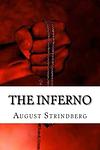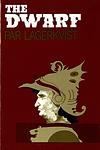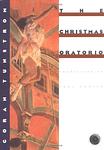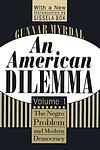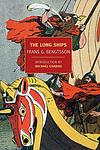The Greatest Swedish, Argentinian, Peruvian Books of All Time
Click to learn how this list is calculated.
This list represents a comprehensive and trusted collection of the greatest books. Developed through a specialized algorithm, it brings together 305 'best of' book lists to form a definitive guide to the world's most acclaimed books. For those interested in how these books are chosen, additional details can be found on the rankings page.
Genres
Countries
Date Range
Reading Statistics
Click the button below to see how many of these books you've read!
Download
If you're interested in downloading this list as a CSV file for use in a spreadsheet application, you can easily do so by clicking the button below. Please note that to ensure a manageable file size and faster download, the CSV will include details for only the first 500 books.
Download-
1. Fictions by Jorge Luis Borges
"Collected Fiction" is a compilation of stories by a renowned author that takes readers on a journey through a world of philosophical paradoxes, intellectual humor, and fantastical realities. The book features a range of narratives, from complex, multi-layered tales of labyrinths and detective investigations, to metaphysical explorations of infinity and the nature of identity. It offers an immersive and thought-provoking reading experience, blurring the boundaries between reality and fiction, past and present, and the self and the universe.
The 101st Greatest Book of All Time -
2. Labyrinths by Jorge Luis Borges
"Labyrinths" is a collection of short stories and essays that explore complex themes of infinity, parallel universes, and the blurred lines between reality and illusion. The narratives often feature protagonists who are scholars or librarians, trapped in surreal, metaphysical landscapes. The author's unique writing style combines elements of magical realism, philosophy, and detective fiction, creating an intricate web of narratives that challenge the reader's perception of reality and fiction.
The 304th Greatest Book of All Time -
3. Pippi Longstocking by Astrid Lindgren
The book tells the story of Pippi Longstocking, a young girl with superhuman strength who lives alone in a colorful house in a small Swedish village. With her pet monkey and horse, Pippi embarks on a series of humorous and often absurd adventures, defying societal norms and adult authority with her unconventional wisdom and moral code. Despite her wild antics, Pippi's kindness, generosity, and courage make her a beloved figure in her community.
The 337th Greatest Book of All Time -
4. Hopscotch by Julio Cortázar
This avant-garde novel invites readers into a non-linear narrative that can be read in two different orders, following the life of Horacio Oliveira, an Argentine intellectual living in Paris with his lover, La Maga. The story explores philosophical and metaphysical themes, delving into the nature of reality and the human condition, while also examining the struggles of intellectual and emotional life. The second part of the novel takes place in Buenos Aires, where Horacio returns after La Maga disappears, and where he grapples with his past, his identity, and his place in the world.
The 530th Greatest Book of All Time -
5. Facundo by Domingo Faustino Sarmiento
"Facundo" is a socio-political critique and historical account of Argentina during the first half of the 19th century. The book examines the life of the gaucho, Facundo Quiroga, who becomes a powerful and ruthless warlord, illustrating the destructive effects of caudillismo (military dictatorship) on society. The author uses Quiroga's life to delve into broader themes such as the struggle between civilization and barbarism, the need for education, and the dangers of unchecked political power.
The 709th Greatest Book of All Time -
6. The War of the End of the World by Mario Vargas Llosa
The book is a historical novel that recounts the War of Canudos, a conflict in late 19th-century Brazil over religious fanaticism, political instability, and social inequality. The story is centered around an apocalyptic movement led by a charismatic, messianic figure who convinces the poor and downtrodden to rise up against the Brazilian government, leading to a brutal and bloody conflict. The book explores themes of faith, power, poverty, and the destructive potential of fervent belief.
The 718th Greatest Book of All Time -
7. Barabbas by Par Lagerkvist
This novel tells the story of Barabbas, the man who was pardoned instead of Jesus Christ, according to the New Testament. After being released, Barabbas grapples with his newfound freedom and the guilt of being spared at the expense of Jesus. As he witnesses the rise of Christianity and the profound impact Jesus' teachings have on those around him, he struggles with his own beliefs and the meaning of his existence. The narrative explores themes of faith, redemption, and the human condition.
The 893rd Greatest Book of All Time -
8. The Girl with the Dragon Tattoo by Stieg Larsson
A disgraced journalist is hired by a wealthy industrialist to solve a forty-year-old mystery involving the disappearance of his niece. He is assisted in his investigation by a brilliant but deeply troubled hacker. As they delve deeper into the mystery, they uncover a twisted web of family secrets, corruption, and murder. The story is a dark and gripping exploration of Swedish society, as well as a thrilling mystery.
The 948th Greatest Book of All Time -
9. The Red Room by August Strindberg
"The Red Room" is a satirical novel that presents a critique of Stockholm society in the late 19th century. The story follows a young idealistic civil servant who loses his job, becomes a journalist, then turns to politics and, along the way, meets a variety of people who open his eyes to the corruption and hypocrisy of society. The novel is a scathing commentary on the political, financial, social, and moral institutions of the time.
The 993rd Greatest Book of All Time -
10. The Dwarf by Par Lagerkvist
"The Dwarf" is a dark, philosophical novel set in the Italian Renaissance, narrated by a malevolent court dwarf who serves a prince. The dwarf is a symbol for the darker side of humanity, embodying all the malice, deceit, and manipulation that one can possess. His actions and viewpoint provide a cynical commentary on human nature and the moral complexities of power, war, and love. The novel explores themes of good and evil, faith and doubt, and the destructive side of human nature.
The 1022nd Greatest Book of All Time -
11. The Christmas Oratorio by Göran Tunström
"The Christmas Oratorio" is a poignant story set in a small Swedish town, revolving around a boy who loses his mother and his relationship with his silent, grieving father. The narrative is deeply embedded in music, specifically Bach's Christmas Oratorio, which becomes a source of solace for the boy. The tale is a rich tapestry of love, loss, and the healing power of music, exploring the deep emotional bonds between father and son, and the transformative power of art.
The 1080th Greatest Book of All Time -
12. Don Segundo Sombra by Ricardo Güiraldes
This classic Argentine novel is a coming-of-age story set in the Pampas, focusing on the life of a young orphan who finds guidance and mentorship under the wing of a seasoned gaucho named Segundo Sombra. Through his experiences in the vast landscapes of rural Argentina, the protagonist learns the values of courage, responsibility, and freedom, embodying the gaucho spirit. The narrative, rich in poetic imagery and symbolism, explores themes of identity, tradition, and the passage into adulthood, offering a deep reflection on the essence of Argentine culture and the timeless bond between man and nature.
The 1133rd Greatest Book of All Time -
13. Conversation in the Cathedral by Mario Vargas Llosa
Set in mid-20th century Peru, "Conversation in the Cathedral" is a complex narrative that explores the corruption, decay, and turmoil of the society under the dictatorial rule of Manuel A. Odria. The story mainly revolves around two characters - a wealthy newspaper owner's son and his family's former chauffeur. Their chance meeting leads to a lengthy conversation that unravels the intricate web of political and personal corruption, disillusionment, and lost dreams in their lives and in their country. The novel is a profound examination of the power dynamics, societal decay, and the human condition in a politically oppressive environment.
The 1245th Greatest Book of All Time -
14. The Feast of the Goat: A Novel by Mario Vargas Llosa
"The Feast of the Goat" is a historical novel set in the Dominican Republic during the rule of dictator Rafael Trujillo. It follows the story of Urania Cabral, a successful lawyer returning to her homeland after 30 years of self-imposed exile, and her struggle to confront the traumatic past that led to her departure. The narrative alternates between Urania's personal story and the brutal regime of Trujillo, providing a stark depiction of political tyranny and its effects on individual lives.
The 1266th Greatest Book of All Time -
15. Los Siete Locos by Roberto Arlt
"Los Siete Locos" is a complex and dark novel set in the 1920s in Buenos Aires. The story revolves around a man who, disillusioned with his mundane life and the corruption he sees around him, becomes involved with a group of anarchists who plan to overthrow the government. The protagonist is drawn into a world of madness, conspiracy, and philosophical debate, as he grapples with his own sanity and the morality of his actions. The book explores themes of existentialism, societal decay, and the blurred line between sanity and insanity.
The 1283rd Greatest Book of All Time -
16. Faceless Killers by Henning Mankell
In this thrilling crime novel, an elderly farmer and his wife are brutally murdered and the only clue is the wife's dying word: "foreign." This sets off a series of events that involves a dedicated detective who must solve the crime while dealing with his own personal problems. The investigation becomes even more complex when the press catches wind of the dying word, sparking a wave of xenophobia in the community. The detective must navigate through the fear and prejudice to find the truth and bring the killers to justice.
The 1295th Greatest Book of All Time -
17. Karlson On The Roof by Astrid Lindgren
The book revolves around the adventures of a mischievous, self-confident man named Karlson who lives in a small house on the roof of an apartment building. He befriends a young boy named Smidge, who lives in the building below. Together, they embark on various escapades filled with fun and humor, often involving Karlson's quirky inventions and his love for tasty treats. Despite the skepticism of adults, the bond between Karlson and Smidge grows, showcasing a world where the fantastical and the everyday merge through the eyes of a child and his peculiar, flying friend.
The 3380th Greatest Book of All Time -
18. The Time of the Hero by Mario Vargas Llosa
"The Time of the Hero" is a novel set in a military academy in Lima, Peru, where a group of cadets try to maintain their individuality and resist the dehumanizing military routine. The story revolves around a stolen exam paper, the ensuing investigation, and the brutal fallout. The novel explores themes of power, corruption, and the struggle for identity within a rigid and oppressive system, offering a critical look at the military institution and its effects on society.
The 1318th Greatest Book of All Time -
19. Hemsöborna by August Strindberg
"Hemsöborna" is a classic novel set in the archipelago of Stockholm, revolving around the life of Carlsson, a city man who moves to the islands to work on a farm. The book delves into the cultural clash between the city man and the islanders, as well as the conflicts and relationships that develop among the island's inhabitants. The narrative also explores themes of love, death, survival, and the harsh realities of rural life.
The 1344th Greatest Book of All Time -
20. The Laughing Policeman by Maj Sjöwall, Per Wahlöö
In this gripping crime novel, a mass shooting on a bus in Stockholm leaves eight people dead, including a police officer. Inspector Martin Beck and his team are assigned to solve the case, but as they delve deeper, they uncover a complex web of corruption and deceit within the police force. With time running out, Beck must navigate through a labyrinth of clues and personal vendettas to catch the laughing policeman responsible for this heinous act.
The 1352nd Greatest Book of All Time -
21. An American Dilemma by Gunnar Myrdal
This book is a comprehensive sociological study on the issues faced by African Americans in the United States during the mid-twentieth century. The author examines the deep-rooted racial discrimination and inequality prevalent in American society, exploring its origins, implications, and potential solutions. The work is notable for its detailed analysis and its impact on subsequent civil rights movements.
The 1482nd Greatest Book of All Time -
22. Aunt Julia and the Scriptwriter by Mario Vargas Llosa
The novel is a semi-autobiographical tale of a young man in Peru who falls in love with his divorced aunt, Julia, while working at a radio station. Their scandalous romance unfolds amidst the backdrop of a chaotic radio station run by a brilliant but unstable Bolivian scriptwriter who churns out daily soap operas. The narrative alternates between the protagonist's real life and the melodramatic world created by the scriptwriter, blending reality and fiction in a humorous and poignant exploration of love and creativity.
The 1522nd Greatest Book of All Time -
23. Martín Fierro by José Hernández
"Martín Fierro" is an epic poem that tells the story of a gaucho, or Argentine cowboy, who is forcibly recruited to fight against indigenous tribes. He returns to find his home destroyed and his family gone, leading him to become an outlaw. The narrative explores themes of Argentine identity, the conflict between civilization and nature, and the injustices suffered by the gauchos. It is recognized as a foundational work of Argentine literature.
The 1619th Greatest Book of All Time -
24. Simon and the Oaks by Marianne Fredriksson
"Simon and the Oaks" is a poignant tale set against the backdrop of World War II, depicting the life of a young Swedish boy, Simon, who comes from a working-class family but dreams of a world beyond his own. His life changes when he befriends Isak, a boy from a wealthy Jewish family fleeing from Nazi Germany. The book explores their friendship, the stark contrast between their worlds, their shared love for literature and music, and the impact of war on their lives. It also delves into themes of identity, love, loss, and the enduring power of human spirit.
The 1636th Greatest Book of All Time -
25. The Long Ships by Frans G. Bengtsson
"The Long Ships" is a historical fiction novel centering around the Viking era. The story follows the adventures of a young Viking named Red Orm who is kidnapped by other Vikings, becomes a slave, then a chieftain's henchman, a merchant, explorer, and a soldier. His adventures take him from his native Sweden to Spain, England, Denmark, and Ireland. The novel explores the political, religious, and cultural landscapes of the era, providing a detailed and engaging portrayal of the Viking world.
The 1660th Greatest Book of All Time
Reading Statistics
Click the button below to see how many of these books you've read!
Download
If you're interested in downloading this list as a CSV file for use in a spreadsheet application, you can easily do so by clicking the button below. Please note that to ensure a manageable file size and faster download, the CSV will include details for only the first 500 books.
Download







